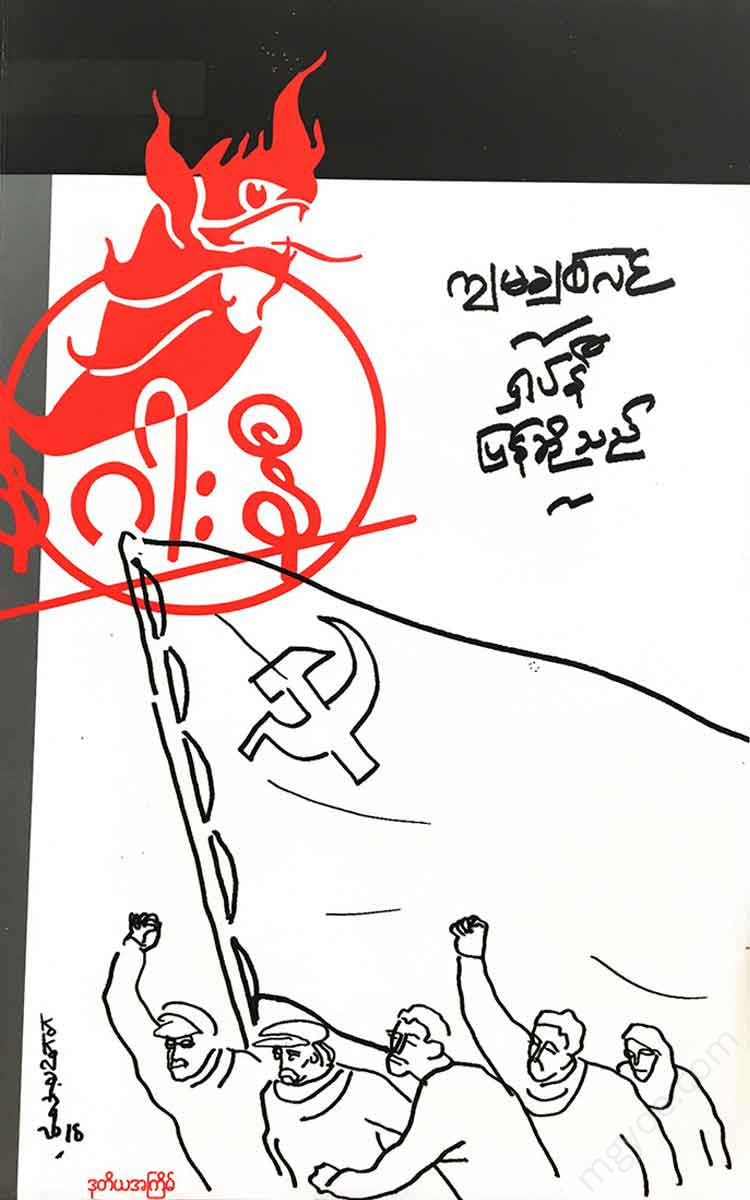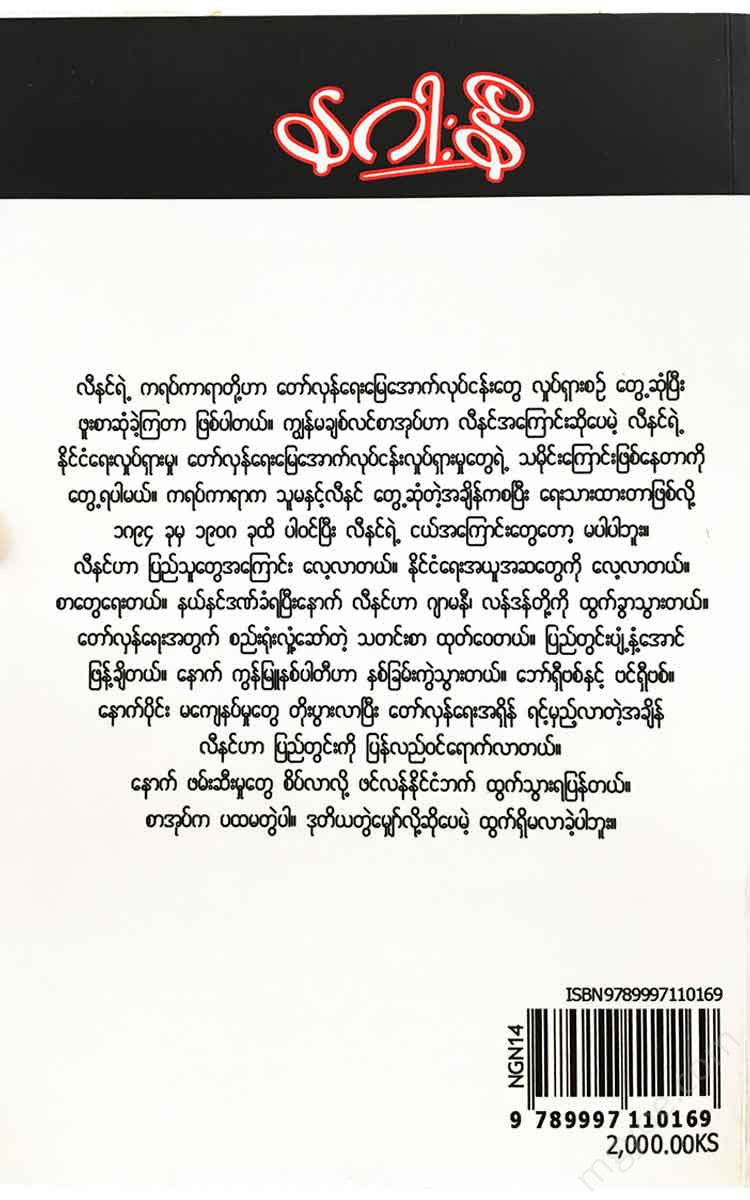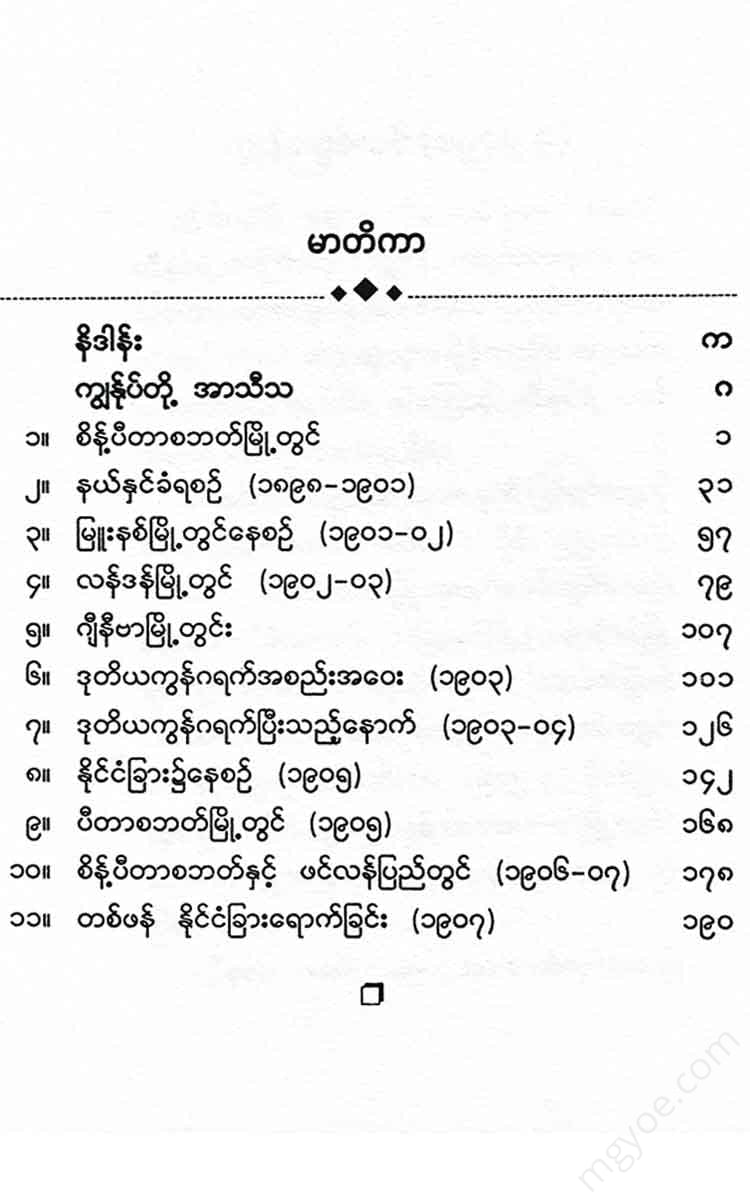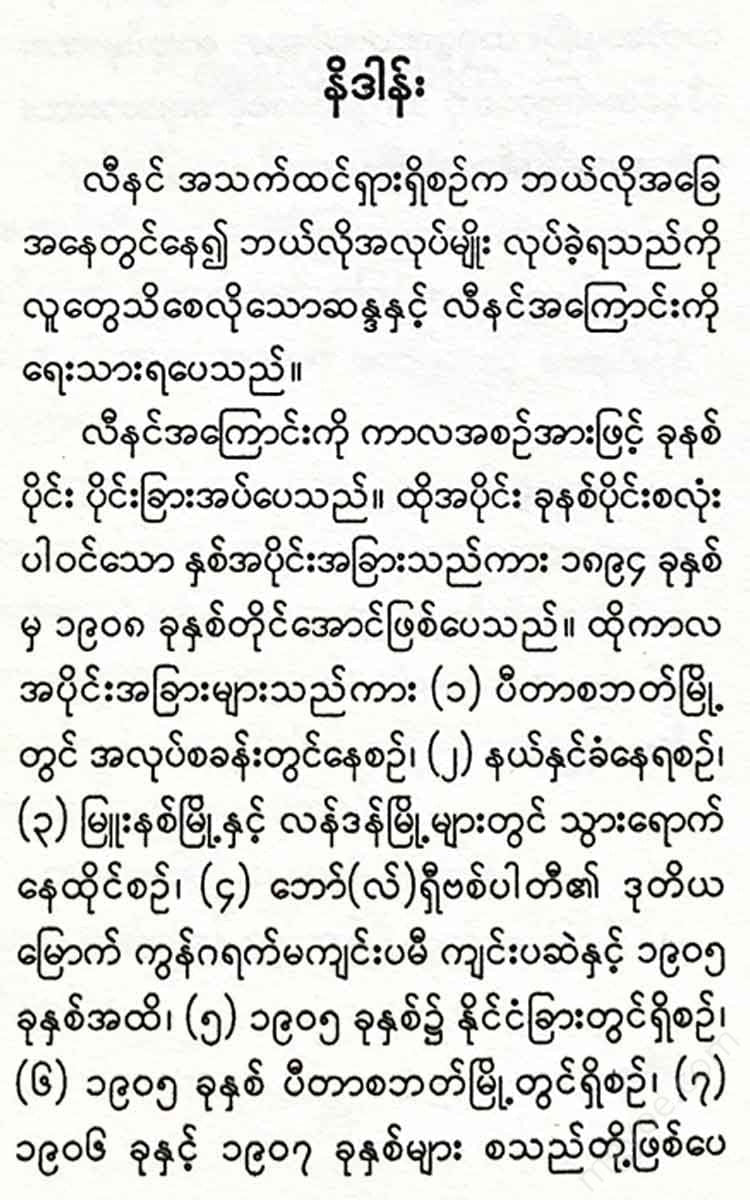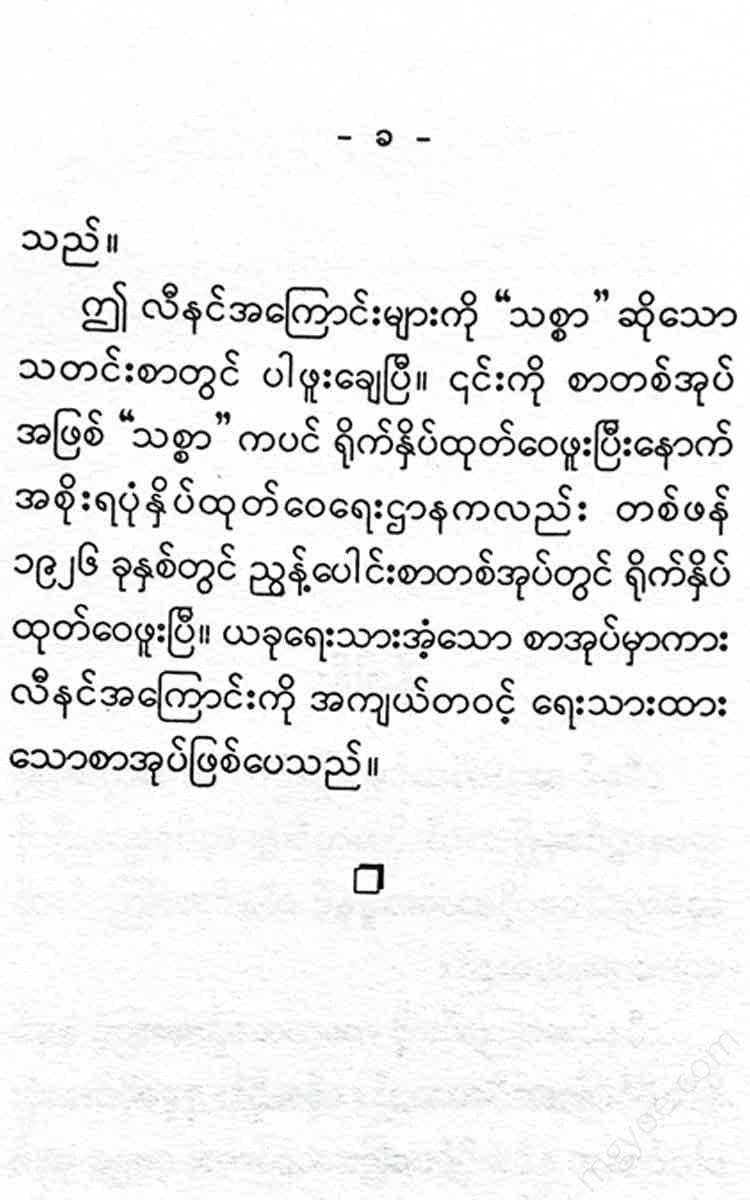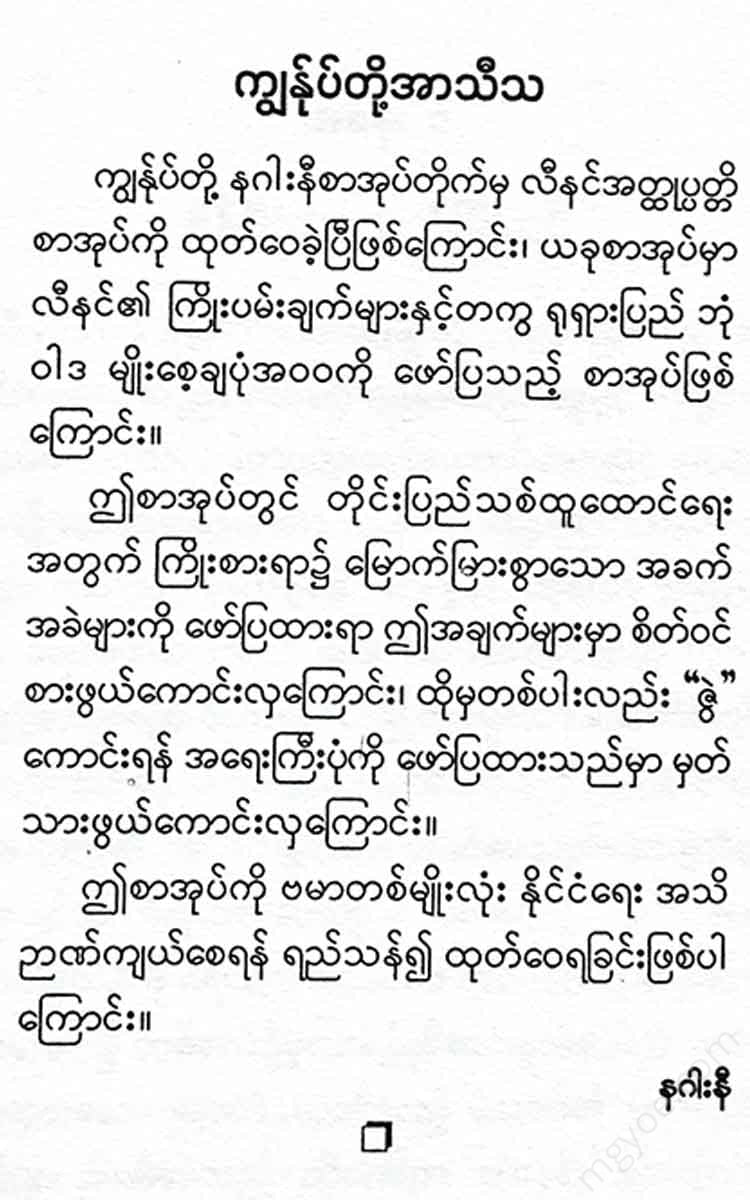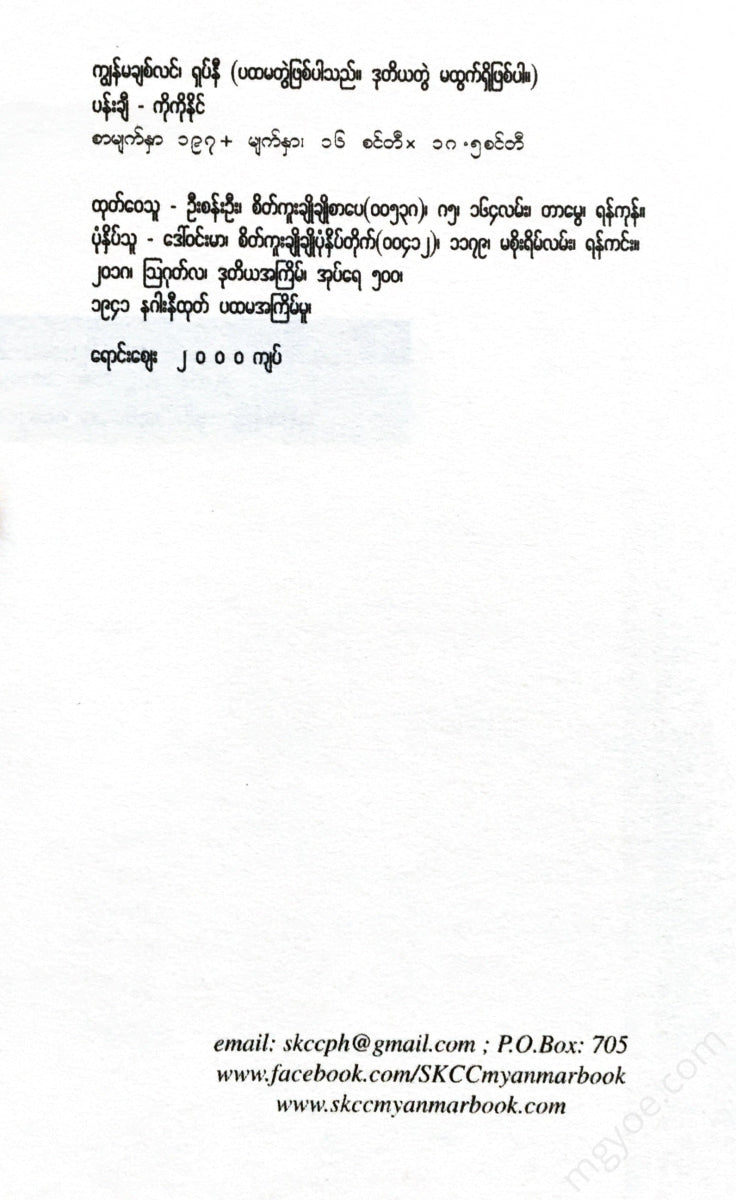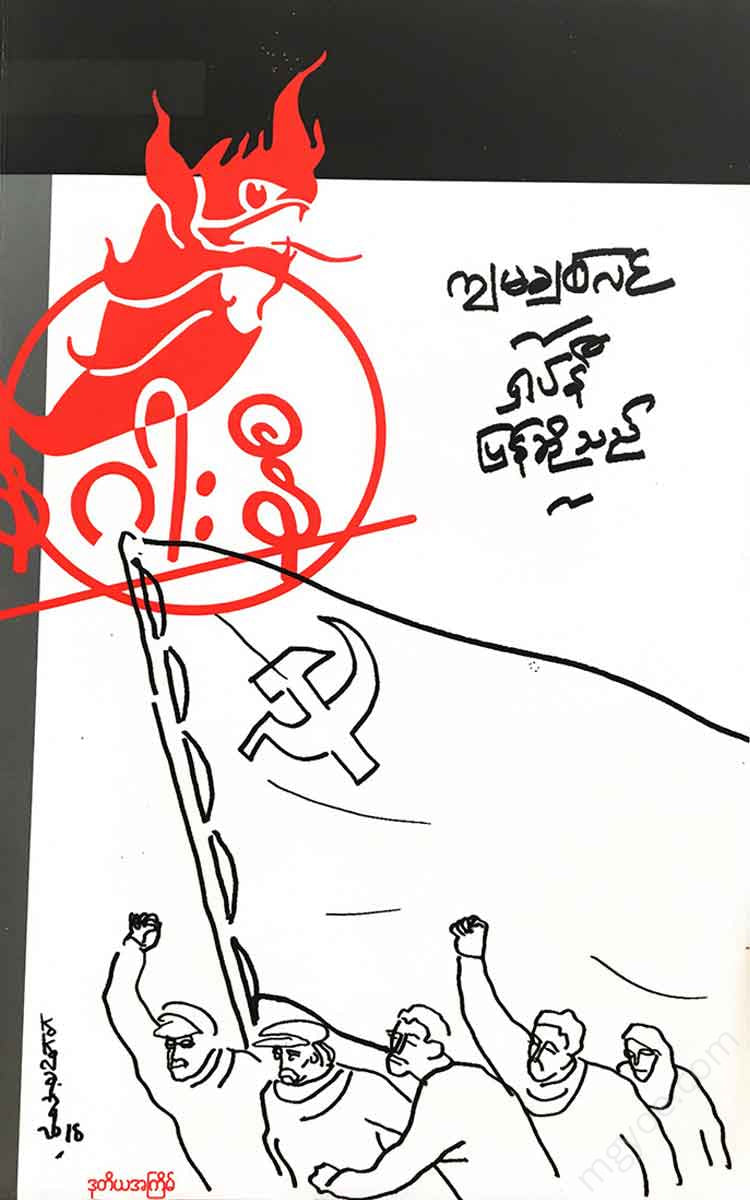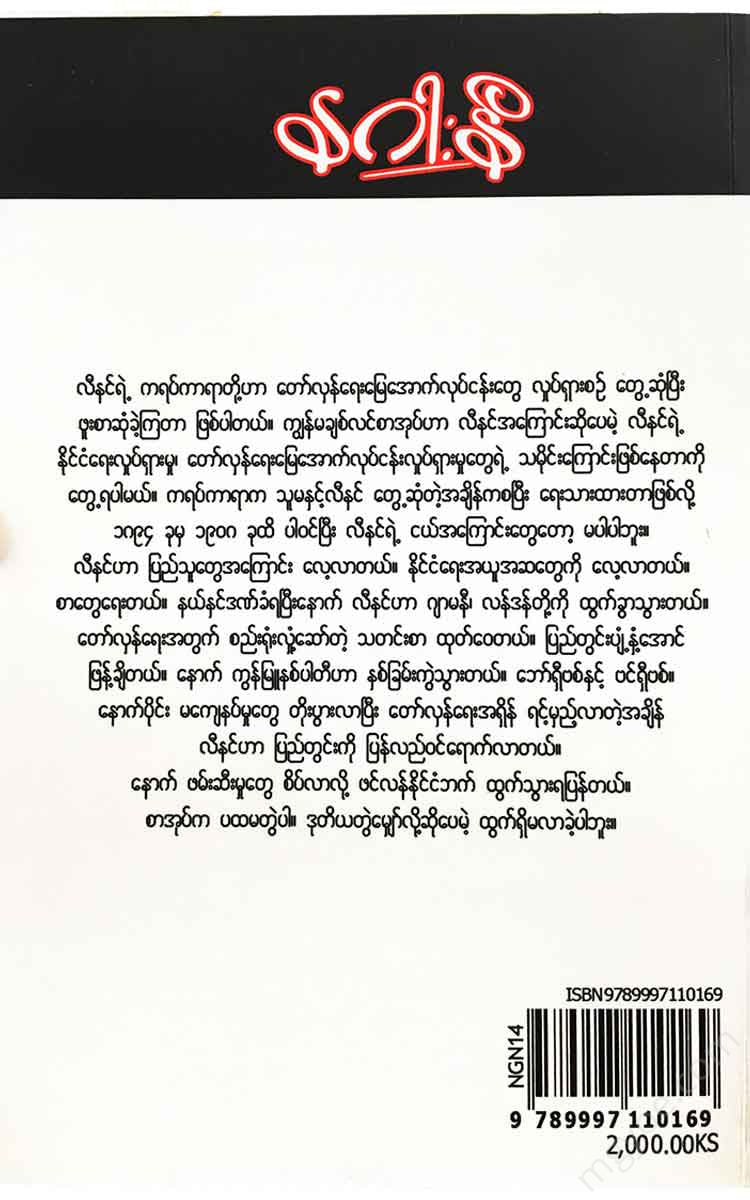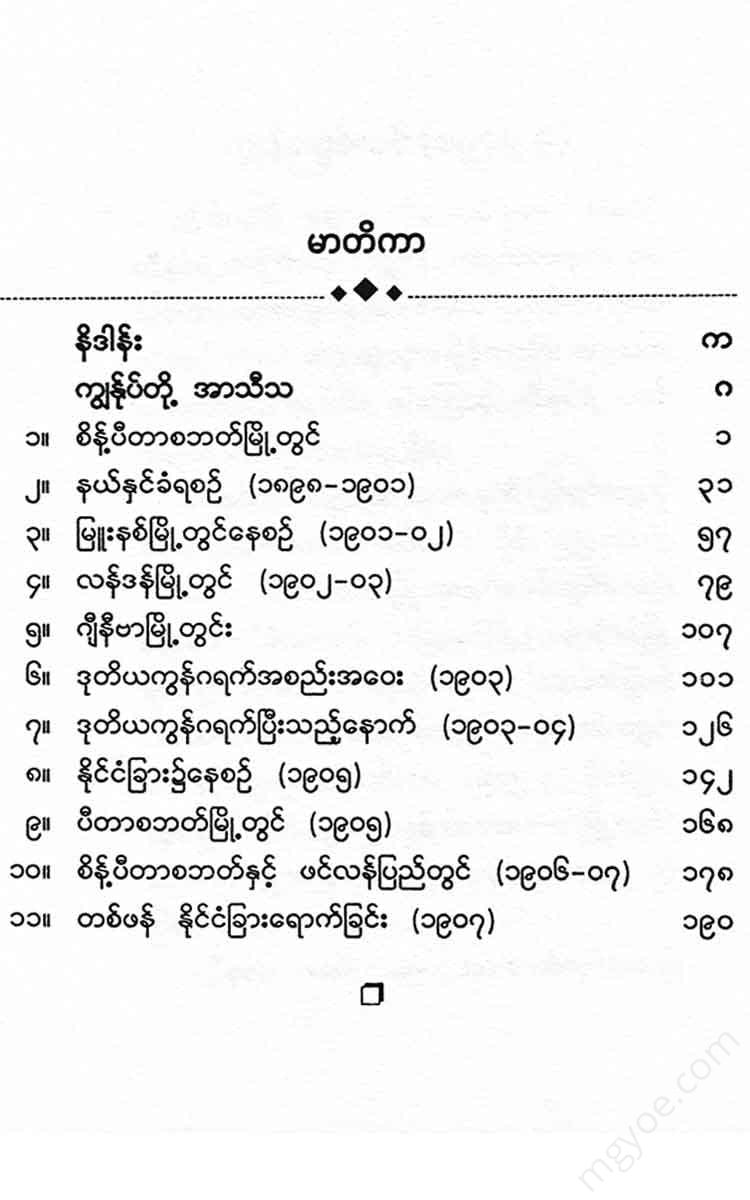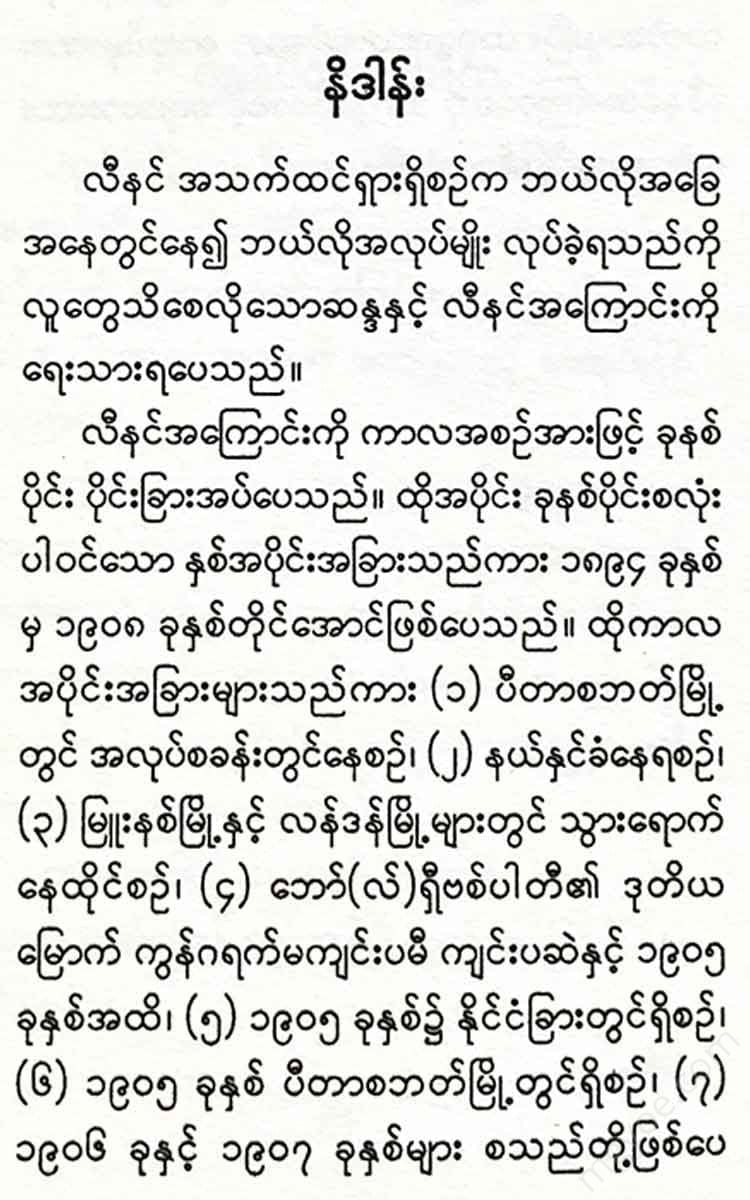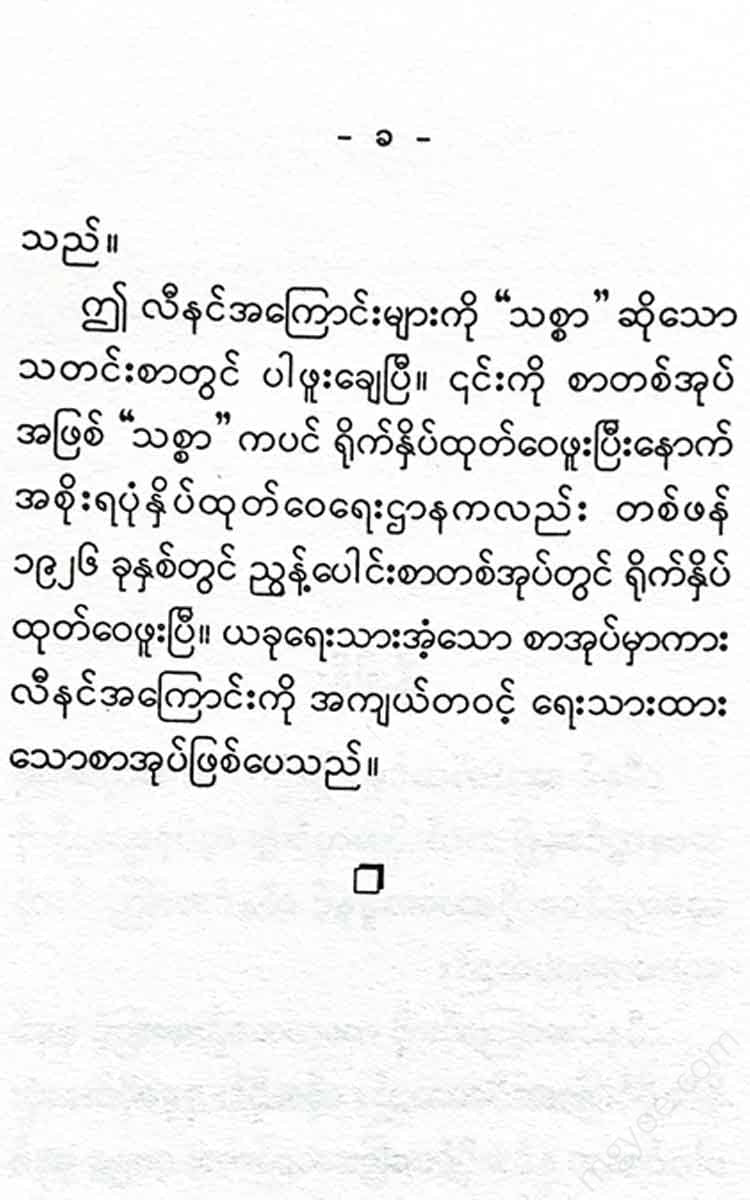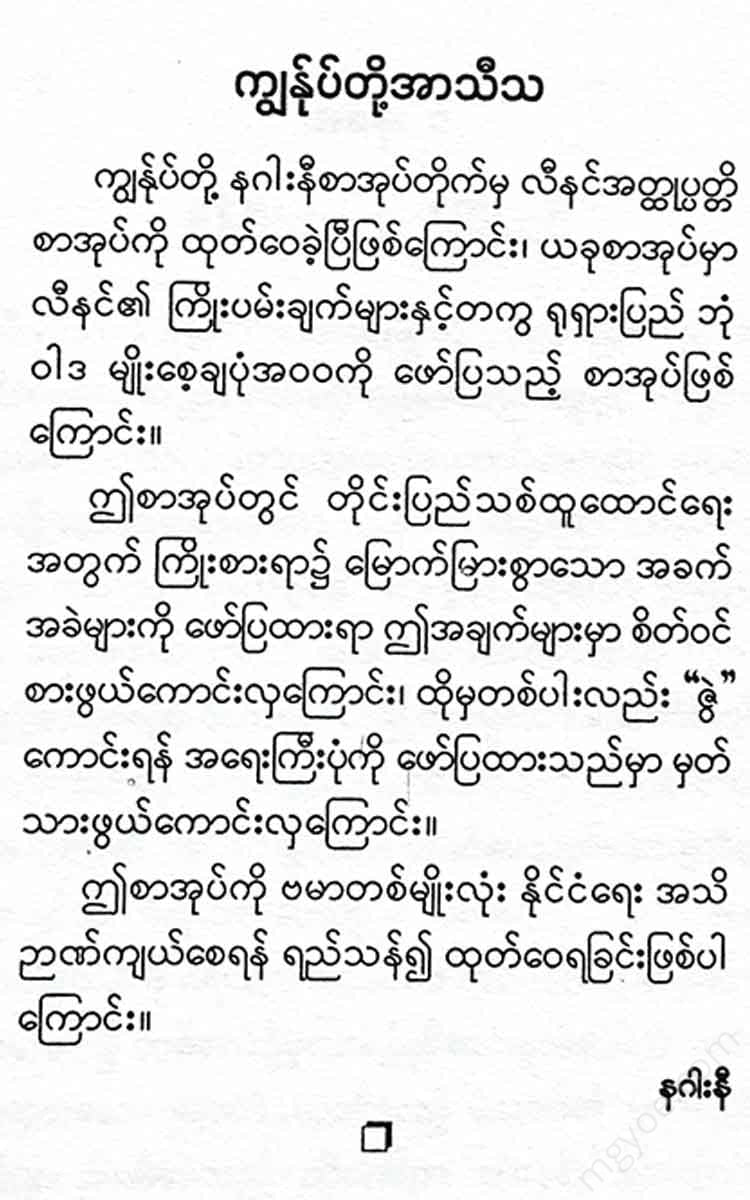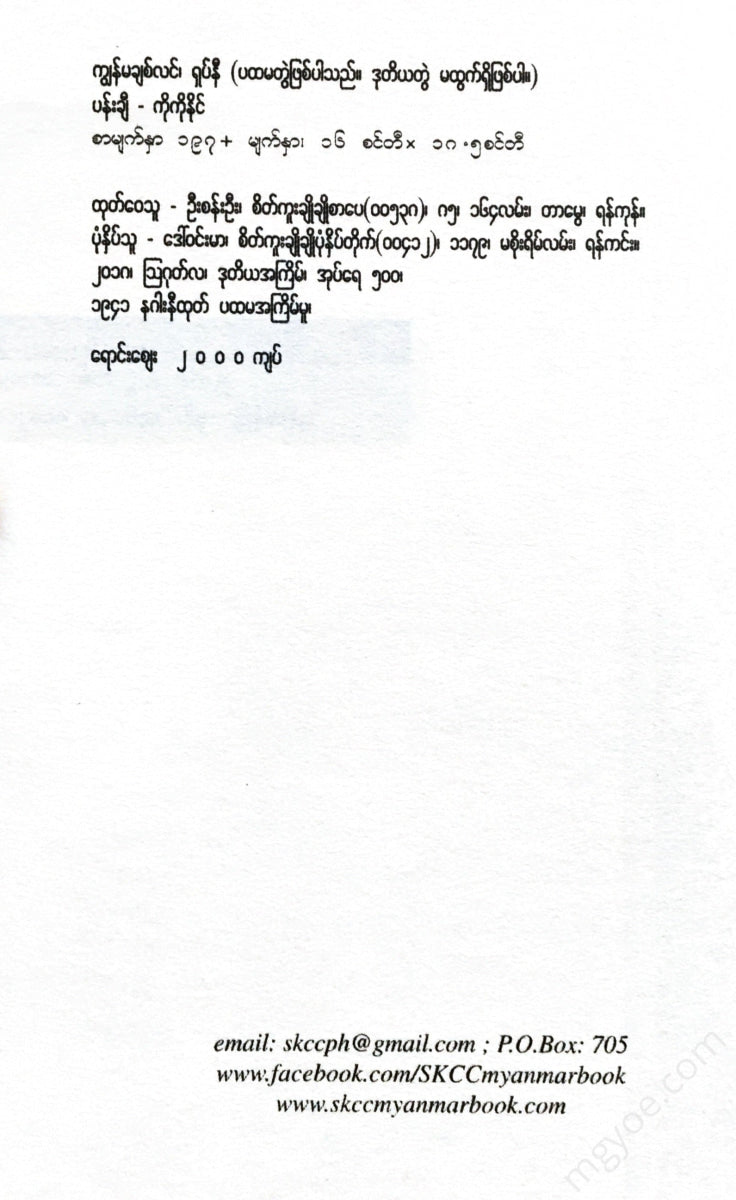စိတ်ကူးချိုချိုစာပေ
Red Shirt - My Love
Red Shirt - My Love
Couldn't load pickup availability
Chapter (1)
In St. Petersburg
Lenin arrived in St. Petersburg in the spring of 1893. At first I did not know him personally. Some comrades told me that he was a Marxist from the Volga region. They brought a draft of an article entitled “ Prices ” for the comrades to read in turn. This book contained the opinions of both the Marxist Harm Krasin in Petersburg and the Marxist from the Volga region. The pages were folded in half in the middle. On one side were Harm Krasin’s opinions, which were written with many errors and in a confused manner, and on the other side were the comments and refutations of the later comrade, written in a very precise manner, without any corrections. At that time, we young Marxists were very interested in the problem of “ Prices ”. A disagreement arose among the Marxists in Petersburg. The members of the sect that had broken away believed that the formation of human relations should be planned automatically, without anyone doing anything. Such a view completely disregarded the role and responsibility of the masses of the poor in the formation of human relations. They believed only in the revolutionary “ contradiction ” of Marxism and in the way in which inanimate objects evolved. Now, however, any Marxist can argue that such a belief is false. At that time, the Marxists in Petersburg paid great attention to this disagreement. At that time, we were still very poorly educated. We had generally not read anything of Marx’s writings except the first volume of the “ Original .” We had not even seen the Communist Manifesto. I also realized, not through intellectual knowledge, but through intuitive knowledge, that the idea that human relationships must arise spontaneously is contrary to the active Marxist ideology.
The time I am writing this is 30 years later. I did not keep the draft book I mentioned, so that book is no longer there. So I can only write about what I remember about it.
The new Marxist who came to us, however, “ considers the problem of prices in an educated way. (Thinking in the mind that all things are merely material is called rational thinking. Thinking in a practical way about the occurrences and events of all things is called legal thinking.) He can also think about how the price problem is related to the interests of the people. His views are, in general, active Marxism, which can really inspire people. He also thinks about the phenomena of the environment in a realistic way. Almost everyone wants to get to know the new person personally.
I had the opportunity to meet him only on the day of the meeting with the comrades in Petersburg. The meeting place was at Klason's house. It was 1894, and in the summer of that year Lenin had read and discussed his article on the economic condition of the people at that very house. Klason was a well-known Marxist in Petersburg, and for about two years he had studied with me in the same seminary. The meeting was arranged in a festive manner, so that no one would notice.
Besides Lenin, Klason, Korobo, Sarabovsky, Rachinko and others were present at that meeting. Potestrov and Struve were also supposed to come, but they did not. I remember one thing very well. When we were discussing the work camp that we were to set up, we all disagreed. I think there was a Shekhar Yarin there. He said that it was very important to join the Illiteracy Eradication Committee. Then Lenin suddenly laughed, and his laugh was very strange. I have never heard Lenin laugh like that again.
Lenin: So, if there is someone who wants to save the fatherland from the illiteracy eradication committee, we will not stop him.
Moreover, I forget to mention that when we were young, we were still in the midst of the opposition between the Tsarist regime and the people's representatives (the peasants). At first, the middle class of the time was very active on the side of the politically oppressed. Then, when the " People's Will " was destroyed, they became afraid and did not dare to speak out. Then, they preached very petty sermons. So, it is easy to understand why Lenin was mocking them.
As Lenin and I became closer, he told me about the horrors of the middle class when his older brother was arrested. When his older brother was arrested, everyone in the family shunned him. The chess teacher who used to come to Lenin's house every evening never showed up. There was no train station in the village of Simbar (the machine), so Lenin and his mother rode on horseback to the railway station in the village of Simbar, where his older brother was arrested. Lenin was sent to find a traveling companion, but no one dared to travel with the mother of a criminal. Lenin said that all this fear had deeply affected him. That same summer, in his article "The Citizen's Sense and the Critique of Struve," Lenin wrote the following:
The bourgeoisie dominates all people, even the middle class. Therefore, it seems to me that it is necessary to approach the bourgeoisie in direct opposition. (Lenin, Collected Works, Vol. 2, p. 18, Russian).
Furthermore, “ You (the Wansans) explicitly admit that if the labor leaders do not cooperate with the modern middle class and work only for the people who are free from the shadow of the bourgeoisie, they will protect the bourgeoisie from their dangers .” (Page 54)
Everyone knows how Lenin treated the real middle class, how he always denounced those who did not believe in him. I will only mention a few of them because they are relevant to what happened at the Clason house.
They did not reach an agreement at that casual meeting. Lenin did not say much because he was thinking only about the people at the meeting. Those who called themselves Marxists could not stand Lenin's glare.
Once, on the way back from a trip along the Neva River, I heard Lenin talk about his brother Alexander. He had joined the People's Will Committee and participated in the assassination of Alexander III, and had risked his life at the hands of the Tsar's thugs in 1886, even before he was a teenager. Lenin loved his older brother very much, and in order to concentrate on his work without distraction, he spent long periods in solitude, away from his friends. They used to live together in a separate room in the house. When they came to visit, they would say, "Excuse me, please leave." Both brothers were zealous and had revolutionary blood, and the only difference was the difference in age, because Alexander did not tell Lenin everything.
Lenin once said that his older brother was also interested in natural sciences. He said that when he was home for the last time, when school was closed for the summer before his death, he had been busy with his telescope, writing a book on the paths of the silkworms, getting up at dawn to get enough light, and working. So I thought that my older brother would never be a revolutionary, that a revolutionary could not spend so much time on silkworms. Lenin later learned that his opinion was wrong.
The fate that befell his elder brother deeply affected Lenin. One important point is that Lenin, by then quite well-versed in all fields of knowledge, had already learned by his own intellect what it meant to fight for the revolution. Otherwise, he would have been deeply saddened by his elder brother's death and would have followed in his brother's footsteps. Lenin was not only wise, but his elder brother's fate sharpened his intellect even more. It gave him a calm mind and made him see the real situation in an unwavering way, not following the whims of his own imagination. Lenin also had the idea that any problem should be considered with honest reasoning.
Lenin's Kraka Kara met and corresponded with him during the revolutionary underground. Although My Beloved is about Lenin, it is a history of Lenin's political activities and revolutionary underground activities. Kraka Kara wrote from the time she met Lenin, so it covers the period from 1894 to 1908, and does not include Lenin's early years.
Lenin studied the people. He studied political ideas. He wrote letters. After his exile, Lenin went to Germany and London. He published a newspaper that campaigned for the revolution. It was widely distributed domestically. Then the Communist Party split into two. Bolsheviks and Bolsheviks. Later, when discontent grew and the revolution was ripe, Lenin returned to the country. Then, due to the increasing number of arrests, he went to Finland again. This is the first volume of the book. The second volume was supposed to be published, but it was never published.
Introduction
I write about Lenin with the desire to let people know what kind of work he did and what kind of circumstances he lived in during his lifetime.
Lenin's life is divided into seven periods. The period of time that covers all seven periods is from 1894 to 1908. These periods are: (1) his time in the labor camp in Petersburg, (2) his time in exile, (3) his time in Munich and London, (4) the time before the Second Congress of the Bolshevik Party and up to 1905, (5) his time abroad in 1905, (6) his time in Petersburg in 1905, (7) the years 1906 and 1907, etc.
These articles about Lenin were published in the newspaper "Truth". After "Truth" published them as a book, the Government Printing Office also published them in a joint book in 1926. The book I am going to write now is a book that writes extensively about Lenin.
Our season
Our Red Dragon Bookstore has published the book Lenin's Biography. This book is a comprehensive account of Lenin's efforts and how he planted the seeds of communism in Russia.
This book describes the many difficulties in trying to establish a new country, and these points are very interesting, and it is also worth noting the importance of "perseverance".
This book is published with the aim of broadening political awareness among the entire Burmese nation.
Red dragon
